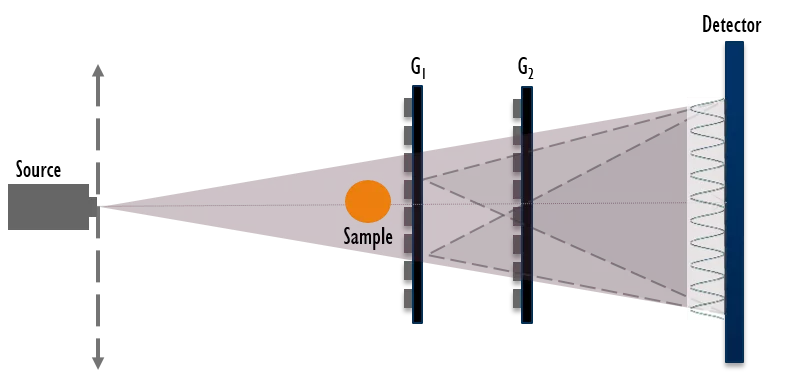The main goal of this project is to design and implement a lab-based dual-phase grating interferometer (DP-XGI) for a multi-scale characterization of mineral building materials (MBM) and wood-based materials (WBM). Taking advantage of the tunability of the dark-field signal, we pursue to analyze the scattering objects with features in a range of hundreds of nano-meters, which is well beyond the intrinsic system resolution.
This project has been organized in two phases. In Phase I carried out at the Paul Scherrer Institute (PSI), a simulation framework will be developed to optimize gratings design; after the fabrication of the gratings, the dual-phase interferometer will be tested, bench-marked and validated with the help of synchrotron beam time campaigns. In Phase II the dual-phase interferometer will be implemented at the high-resolution system µCT facilities in Ghent University, and used to measure specific building materials and wood based materials with the aim of assessing micro-structural features.
References
- Kagias, M., Wang, Z., Jefimovs, K., & Stampanoni, M. (2017). Dual phase grating interferometer for tunable dark-field sensitivity. Applied Physics Letters, 110(1), 014105.
-
Strobl, M. (2014). General solution for quantitative dark-field contrast imaging with grating interferometers. Scientific Reports, 4, 7243.
Collaboration
- The Laboratory of Wood Technology (UGent-Woodlab)at the University of Ghent in Belgium.
- The Pore-scale Processes in Geomaterials Research group (UGent-PProGRess) at the University of Ghent in Belgium.
Funding
The project Model-Coupled 4D-µCT for Advanced Material Characterization (abbreviated MoCCha-CT) is a large-scale research project with economic finality. It is funded by the Research Foundation - Flanders in the Strategic Basic Research Programme (FWO-SBO).
